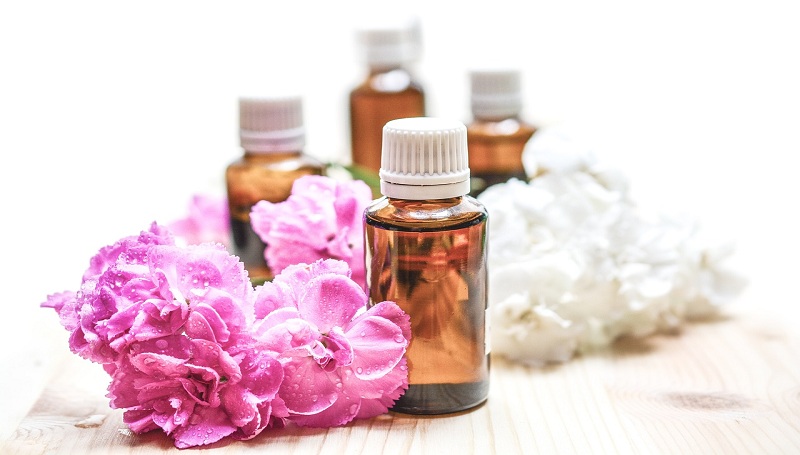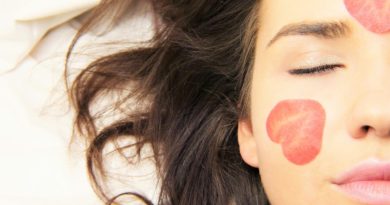Do essential oils live up to the hype? Make essential oils at home using distilled water
Do essential oils live up to the hype?
Essential oils became a trendy lifestyle fad hot on the heels of aromatherapy. These highly concentrated oils usually extracted from aromatic plants like herbs, flowers, spices and citrus came into vogue, disappeared for a while, and are now a hot item again.
Essential Oil Saturation
One only has to Google “essential oils” to find page after page of dealers of “theraputic grade” and other essential oils: Young Living, Puritan, Bulkapothecary, New Directions, Mountain Rose Herbs, Rocky Mountain Oils, Nature’s Kiss, DoTerra, Silky Scents and more line page one. A search for “essential oils dealers” turns up 4,650,000 results!
History & Health
Proponents of essential oils are always quick to point out the use of these oils dates back to ancient times and can be found in many cultures, even mentioned in the Bible. What is rarely mentioned is the average lifespan in those countries was much shorter than the average lifespan today which raises questions as to how effective essential oils are compared to modern medicine. In fact, life expectancy remains low in many of the Asian and Middle Eastern countries which export essential oils, which is a conundrum.
How Effective Are They?
For use on top of the skin, essential oils can act as humectants, and they can soothe minor irritations. The wrong oils can also aggravate irritations. Oils are comedogenic, so they can clog pores. Some essential oils do kill bacteria on the surface of the skin, and there is some evidence some lipids can help exfoliate skin in a less aggressive fashion than scrubs. However, oils with citrus photosensitize the skin and should not be used when going outdoors.
Don’t Eat the Daisies
Before ingesting any essential oils, it is an important to speak with a doctor. Although essential oil manufacturing uses fewer harsh solvents in the process than in years past, the process is not always as “pure” as dealers would like consumers to think. In addition, some essential oils can be toxic to the liver or kidneys when ingested.
Expensive to Buy–Cheap to Make
Essential oils can be quite costly to purchase. However, many of these same oils are relatively cheap to distill at home using the relatively simple and effective water-and-steam distillation process. To do this, there are actually stills which can be purchased just for the preparation of good-quality oils at home. The stills themselves are not cheap, though. Thankfully there are other options to making essential oils at home using distilled water as well as olive oil, rapeseed oil and other oils to create essential oils at home.
We will look at how to create essential oils at home using distilled water in Part II and with oil based methods in Part III of this series.
Note: Home-made essential oils are not rated as “therapeutic grade” and should not be ingested. However, these home methods are often similar to those used in ancient times, and there was no such thing as “therapeutic grade” in ancient times.
How to make essential oils at home using distilled water?
As mentioned above: “Do essential oils live up to the hype?” DIY essential oils can be made much less expensively at home than the cost of purchasing them, and there are several ways to create the oils at home. Two of the most popular methods are through the use of distilled water and using oils.
The advantage of the distilled water method over the oil method is the essential oil produced through heating the distilled water will last about twice as long as the oil method.
It should be noted there are numerous debates over whether or not essential oils really help the skin. If the essential oil is for skin care use, for instance, oils made with citrus photosensitize the skin and should not be used when going outdoors, and most oils are at least somewhat comedogenic. While the right essential oils, used in the right formulations with the right medicinal ingredients can enhance the skin, it is doubtful DIY products will benefit more than the top layer of dead skin cells.
In addition, these home-brewed oils are not rated as “therapeutic grade” and should not be ingested. However, methods for making essential oils at home are often similar to those used in ancient times where there was no such thing as “therapeutic grade.”
Materials Needed for the Distilled Water Methods:
For home-made oils, you will need fresh or dried flower petals, herbs, spices or citrus fruit rinds. You will also need a crock pot, a cooking pot or saucepan, distilled water, a dark glass bottle, and cloth.
Crock Pot Method
1. Fill a clean crock pot with distilled water.
2. Place a couple of cups of fresh or dried plant material in the crock pot.
3. Cook mixture on low for 24 hours.
4. Cover with a cloth and let crock pot sit for a week.
5. An oil will form on the top which can be removed after a week.
6. Put oil in a dark glass container and cover with a piece of cloth.
7. Allow the oil to sit for a week to let any excess water evaporate.
8. Cap the remaining oil and store in cool, dark place where it will keep for about a year.
Cotton Bag Method
1. Fill a cotton or linen bag with fresh or dried plant material. and tie closed.
2. Place the bag in a pot of distilled water.
3. Bring mixture to a boil and then turn the heat back to simmer.
4. Let the mixture simmer for 24 hours.
5. As with the crock pot method, an oil will form on the surface. Squeeze the bag to get all the oil.
6. Put oil in a dark glass container and cover with a piece of cloth.
7. Allow the oil to sit for a week to let any excess water evaporate.
8. Cap the remaining oil and store in cool, dark place where it will keep for about a year.
After the oil is removed, the remaining water can also be stored for use as rose water, lavender water, etc. depending upon the scent.




